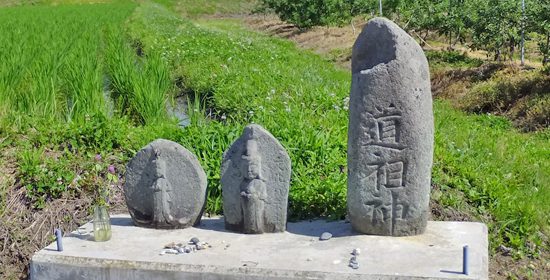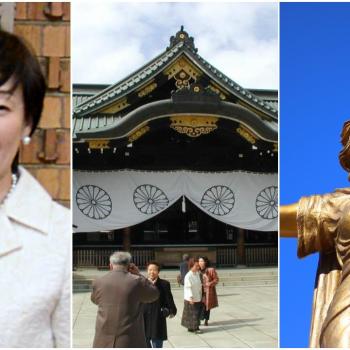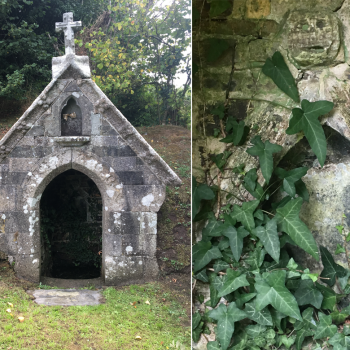The concept of genius loci is an interesting one. The term originally refers to the spirits in Roman religion said to guard a particular place. The genius loci of the ancient Romans strongly resemble the dōsojin guardian spirits in Shinto, who protect boundaries and travellers and who you can find represented by rock shrines all over Japan.

In modern usage, genius loci refers in more abstract and non-religious terms to the “spirit of place;” in other words, the nature, appearance, culture and people distinct to a particular region.
As a Shinto-Pagan, I like the idea of genius loci in the sense of an actual guardian spirit of a place, and as the “essence” of a place, being combined together – and the idea that we too can be considered part of this genius loci.
I think about this when considering my own identity. I’m British, not only through birth but also through my culture and habits. I eat the food that was grown here (where this is possible!) and drink the water that flows here, and because I take in nutrients from the land in this way, my body is literally made up from the produce of the land. What’s more, I appreciate and take part in the many forms of culture that exist here, and I contribute to British society through paid and voluntary work. This makes me an active part of the genius loci.
Although I have no Japanese blood whatsoever, when I lived in Japan, I also felt that I was gradually becoming a part of the genius loci, through the same process. Not only was my body literally becoming part of the land by eating Japanese food, but also through my study of the Japanese language, participation in Japanese culture, travelling out to places of natural beauty in Japan and contributing to Japanese society by working in Japanese schools, I was slowly becoming just as much a part of the genius loci of Japan as a native Japanese person. Now I have returned to the UK, because I can still speak Japanese, work for a Japanese organisation and still appreciate Japanese culture (including practising Shinto of course), I feel I am still a small part of the genius loci of Japan, whatever that may be.
Moving to a country where you were not born can make it feel hard to fit in. Certainly when I was in Japan I felt this this at times; there are many subtle cultural differences between Japan and the UK so I made many social errors at first, and the fact that Japanese wasn’t my first language made it hard for me to express myself fluently and therefore form relationships as easily as in the UK. These things did make me feel like an outsider at times. However, deep down I knew that both my physical and cultural interactions with Japan means that I was still a part of this genius loci, and that hopefully somewhere in the world of the kami, I was being accepted.
I think that by embracing the idea of the genius loci, and the notion that we ourselves are a part of the essential “spirit of place,” we can deepen our connection with our local area, environment and community, as well as build our own identity – an identity that is not necessarily dependent on what’s written on our birth certificate.












